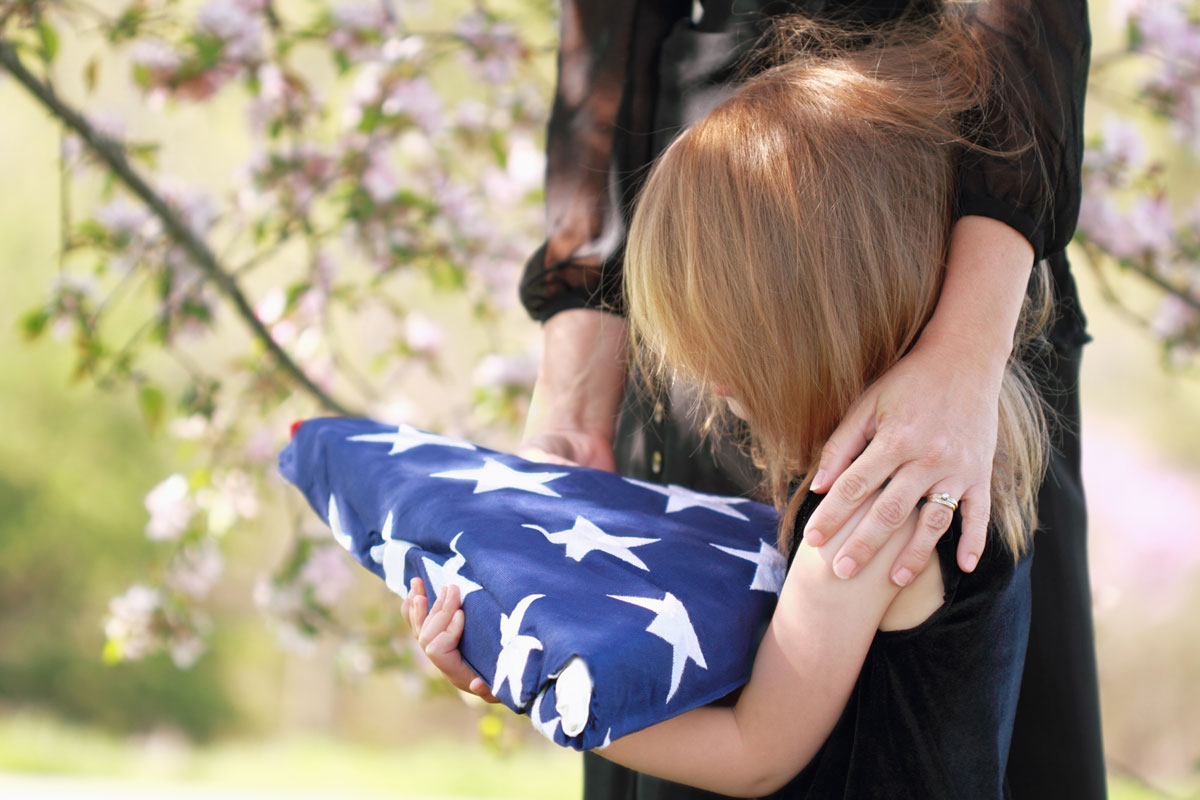How Grief Affects Victims of Mesothelioma and Their Families
When someone loses a loved one or experiences another traumatic loss, they will likely have feelings of grief. The emotion is a normal, human response to death and other serious losses (such as losing a job). Grieving is a process and could take months or years.

Grief and Mesothelioma
Grief affects everyone differently and is a natural reaction to the death of a loved one. Usually, it includes a range of emotions that take time to process. After a mesothelioma diagnosis, grief may follow certain life changes.
It is normal to start grieving after cancer-related losses. For instance, people with advanced mesothelioma may grieve a loss of independence.
Usually, minor children express grief differently than adults.
| Term | Meaning |
| Grief | The personal experience of and reaction to loss. |
| Mourning | The process of accepting loss, including religious and cultural rituals. |
| Bereavement | The period during which a person is grieving or in mourning. |
Signs that someone is grieving include:
- Being angry or jealous of others with their loved ones
- Creating reasons for their loss that may not make sense
- Difficulty sleeping
- Dwelling on regrets they have with the deceased
- Expressing guilt for the loss
- Looking sad or depressed
- Losing weight
- Loss of appetite
- Periods of restlessness or anxiety
- Persistent fatigue
- Seeing or hearing the deceased
- Talking about being lonely while surrounded by others
- Withdrawing from family and friends
Why Do We Feel Grief After a Mesothelioma Diagnosis?
A mesothelioma diagnosis is a life-changing event for patients and their loved ones. The loss of health, the ability to work, and certainty for the future can be devastating. Accordingly, feeling grief after a mesothelioma diagnosis is normal.
Family members may begin to grieve the loss of their loved one with cancer following a cancer diagnosis. Starting the process of grieving before losing a loved one is known as anticipatory grief.
Some feelings, like depression, are common among mourners. Recognizing the signs of mourning may help victims progress through the stages. However, some people may be overwhelmed by their grief and need help processing it. Complicated or unresolved grief may require support from a grief therapist or counselor.
Signs that you may need therapy or mental health counseling for your grief include ongoing problems like:
- Difficulty focusing on responsibilities
- Disregarding self-care routines
- Feeling worthless
- Insomnia and sleep problems
- Thinking about suicide
- Trouble eating
- New or reoccurring PTSD
Mourning
One of the many complications of mesothelioma is grief. While grief is the internal experience of loss, mourning is the outward expression of it. Culture, religion, and family traditions influence how people express their grief while in mourning. Mourning is considered an essential part of grieving because, without it, negative thoughts and feelings often get worse.
To progress beyond a state of mourning, experts encourage:
- Accepting the loss (of your health, if you have cancer, or a loved one if you’re a family member.)
- Recognize your grief and the pain it causes.
- Adapting to life after your loss.
- Remembering and appreciating times of joy (with loved ones who have passed or times of good health).
Time spent mourning (or being in the state of mourning) is referred to as bereavement time. Bereavement may also refer to a workplace benefit that allows employees to take time off after the death of a family member.
Stages of Grief
Grief is a complex process of emotions. Beginning to grieve earlier doesn’t mean it will end sooner. There is no set amount of time for how long grief should last. Every person experiences it differently.
Likewise, progressing between the stages of grief is different for each person. Some days you may feel okay and begin to accept the loss. Then, a birthday or holiday could remind you of your loved one, bringing back feelings of anger and depression.
However, it’s important to remember that your pain will not always be as intense. The heartache of loss eases with time and support.
5 Stages of Grief
- Shock and denial. At first, many people are not ready to accept the reality of their loss. Often, they are too stunned and put off dealing with the loss.
- Anger. Typically, feelings of anger (including frustration and anxiety) follow the first stage of denial. Being angry is common and people may react harshly to small triggers for days or months.
- Bargaining or guilt. When a person feels worthless or aimless, they may be in the bargaining stage. Generally, talking through these feelings is the best way to see how irrational they may be.
- Depression. As life changes after a loss, people often begin to feel depressed. Depression occurs when extreme distress or sadness prevents someone from taking care of themselves or their responsibilities.
- Acceptance. Accepting loss is the final stage of grief. It may take months or years, but you will slowly adapt to life after your loss.
Coping With Cancer
Coping with cancer isn’t easy. In addition to the physical pain of treatment, many patients must deal with the pain of loss – losing their health, having to stop working, and potentially losing future time with loved ones. Moreover, family members must likewise find ways to cope with cancer-related losses.
People with mesothelioma must take the time to come to terms with their diagnosis. They may experience some emotions related to grief, but it is natural.
Tips for coping with cancer include:
- Be patient with yourself and your physical changes.
- Join a support group to talk to others with cancer.
- Let yourself go through painful feelings.
- Look for ways to express your creativity.
- Maintain a daily routine.
Finding Mesothelioma Grief Counseling and Support
Remember that grief is a normal reaction to loss. Yet, intense grief or sorrow may require professional help to get past. Many local and national organizations are dedicated to helping people manage their grief and there are also other acts for veterans to help aid grief.
The American Cancer Society (800-227-2345) offers cancer education and counseling to patients and their families.
The VA’s Program of Comprehensive Assistance for Family Caregivers (PCAFC) is offered to caregivers of veterans with service-connected disabilities. Mental health counseling is one of the available VA benefits.


